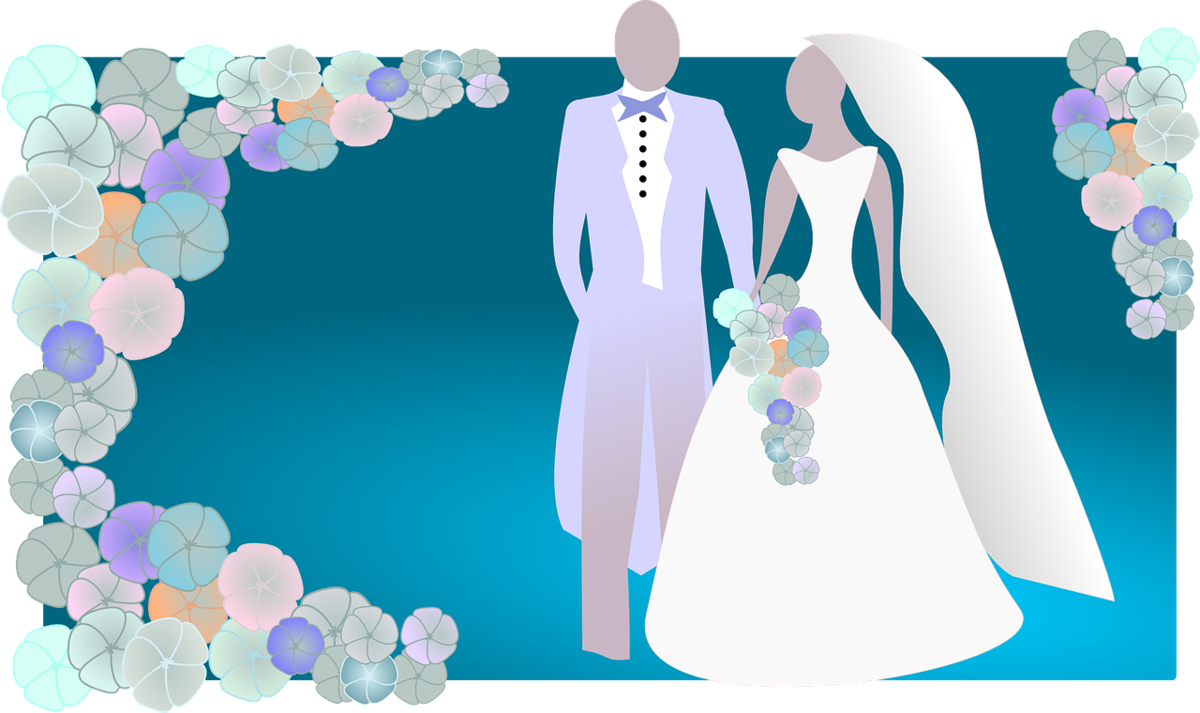「嫌い」の裏に隠された「好きの感情」?心の誤解を解き、本音を見抜く方法

In relationships, it can be difficult to understand the other person's emotions and intentions correctly. Even if you think that you may not like them, it is possible that the sign is actually the flip side of favor. Especially in love, subtle emotional swings and a sense of distance are important. What can you do to avoid misinterpreting the true feelings of such a person?
In this article, we'll explore some tips on how behaviors that are considered "dislike signs" can be interpreted as signs of favor. In addition, we will consider approaches to correctly deciphering the attitude of others and how to overcome our own insecurities.
Everyone has the experience of wanting to know the other person's true feelings in a relationship or friendship. Now, why don't you stop and reevaluate the other person's behavior? This may be the catalyst for deepening the relationship. In this article, we will explore the specific method in detail.
1. Disliked? Or is it liked?
A habit of thinking that is easy to misunderstand as being disliked
Feeling "hated" is often due to a habit of thinking about oneself. For example, people who tend to easily interpret the other person's attitude in a negative way may assume that actions or expressions that are not actually true are disgust for themselves. In particular, behaviors such as "they don't respond immediately when I talk to them" or "they don't make eye contact" are often busyness or just shyness.
Characteristics of people who are easily misunderstood
The misconception that "I thought I was disliked, but I was liked!" is likely to occur in people whose impression of the other person tends to be greatly influenced by their own assumptions. These people often lack confidence and read deeply into the casual words and actions of others. In addition, people who are not good at communicating their emotions and intentions to others often misread the true intentions of others. It is important to note that people with poor communication skills, lack of language, or poor expression of emotions may perceive it as disgust even though they are being favored.
What is the psychology behind ambiguous attitudes?
If the other person is ambiguous, it is easy to think that they don't like you. However, behind such an ambiguous attitude, there may actually be a good intention hidden. Men, in particular, are often shy or not good at honestly communicating their feelings, so their seemingly nonchalant attitude and reticence are often the flip side of "liking". They may also be embarrassed to have their emotions realized, so they may deliberately distance themselves from them. If you associate these attitudes with disgust, you may miss out on the other person's true feelings.
Examples of misconceptions in friendship and love
In friendships and relationships, it is common to see cases where people believe that they are "hated" and end up behaving irreparably. For example, a typical example is that when you were in elementary school, you were teased by a certain boy and felt that you were "hated," but it was actually a sign that you "liked" him. Similarly, in adult relationships, it is easy to think of cold responses and reduced contact as a lack of favor. However, these may simply be due to the other person's shy personality or busyness. The important thing is not to focus only on the other person's behavior, but to read the psychology behind it.

2. Signs of favor that seem to be disliked
Reasons to avoid communication
If the other person seems to avoid communicating with you, many people tend to think that they don't like you. However, this is not always due to negative emotions. Due to their shy personalities and nervousness, which are especially common among men, they may deliberately distance themselves from the person they like. There are many situations where you are surprised, "I thought I was hated, but I was liked!" As a result of being so conscious that the other person cannot be natural, you can see that they refrain from communicating.
Is not making eye contact or being silent the flip side of favor?
Attitudes such as not making eye contact or being silent are also behaviors that are often mistaken for negative emotions. However, this can also be the flip side of favor. Because you have feelings of liking, you don't want the other person to hate you, or you don't want to find out about that feeling, so you look away from embarrassment or refrain from talking. Especially if your self-esteem is low, you may take passive action such as "I'll keep my distance if I don't like you." This kind of attitude tends to hide the other person's goodwill.
Feelings hidden in the behavior of not being invited or rejected
When you are not invited or refused, you may think that you are not interested in yourself, but in fact, there may be hidden favors lurking there. Some men are extremely nervous about spending time with someone they like and can't act well. If an invitation has not gone well in the past or you are not confident in yourself, you may think that "if you don't do it well, you may not like it," and it may appear as an action that dares to distance yourself.
How to manifest clumsy favors
It's common for people to like you but don't know how to convey it, and it shows up in a clumsy way. For example, when you were in elementary school, you may have seen a boy who was deliberately mean to the opposite sex you liked. This is a typical example of an immature skill in conveying feelings well, which leads to the opposite behavior. Many people have this kind of clumsiness even as adults, and they may have a dismissive attitude or misleading behavior toward the person they like. Even if the other person's behavior seems disliked at first glance, it is important to carefully explore the hidden intentions behind it.
3. How to tell if you like or hate
Tips for objectively observing the other person's attitude
In order to avoid the experience of "I thought they hated me, but they liked me!", It is important to calmly observe the other person's attitude instead of judging emotionally. Sometimes, misunderstandings can occur by taking the other person's words and actions too much as directed at you. If you feel that the other person is dismissive, but the attitude is similar to that of others, it may not be hatred for you personally. Men are especially shy and may have a cold attitude toward those who like them.
How to recognize signs that are mistaken for no pulse
In order to prevent misunderstandings, it is effective to observe the other person's actions and words as a point. For example, deliberately not making eye contact or turning away at the moment when a conversation is interrupted can actually come from shyness or embarrassment. Also, if you decline an invitation, it may be due to busyness or timing, and not because they don't like you. The important thing is not to judge by individual actions, but to look at the overall pattern. The feeling that "I thought I was hated, but I was liked!" is often due to a simple misunderstanding.

Communication to clear up misunderstandings
How you perceive the other person's attitude is a big key, but the best way is to communicate openly. By having an attitude of listening to the other person's feelings without rushing, it will be easier for the other person to feel comfortable and talk about their true feelings. Especially for shy men, try to draw them into the conversation little by little without rushing. Also, being honest and saying, "I was a little worried because I saw your attitude this way" will help prevent misunderstandings. It is hoped that efforts will be made to remove unconscious prejudices and build more open relationships.
The Importance of Reviewing Your Self-Assessment
The reason why you always feel that you don't like me is often related to my low self-esteem of yourself. When you lack confidence, you're more likely to view everything the other person does negatively. First, let's take a look at what value we bring to others. By doing so, you will be less likely to interpret the other person's casual behavior in an excessively negative way, and it will help reduce the chance of realizing later that "I thought they hated me, but they liked me!"
4. How to bring out the other person's true feelings while preventing misunderstandings
Mindset to face the other person honestly
In order to bring out the other person's true feelings, it is important to first face the other person with an honest feeling. As in the case of "I thought I was disliked, but I was liked!", It is easy to misunderstand if you receive the other person's attitude superficially. As a mindset, don't be too bound by your own emotions and preconceived notions, and have an attitude of flexibly accepting the intentions and feelings hidden behind the other person's actions. Also, if you have low self-esteem, you may feel that you are "hated" more than necessary. For this reason, it is also important to be aware of what kind of impression you are giving to the other person.
The art of asking questions that respect the other person's position
In order to be sincere with others, the way you ask questions also has a big impact. Ideally, you should be respectful of the other person's position and feelings, while having a dialogue with soft words. If you ask one-sided questions or rush answers, the other person may close their minds. "How have you been feeling lately?" or "What do you think about this?" By using open questions such as, the conversation will naturally develop and it will be easier to bring out the other person's true feelings. With such an approach, even if the other person is a shy man, you may gradually become clearer about your feelings for yourself.
Creating an environment that makes it easier for others to open up
In order to bring out the other person's true feelings, it is also important to create a relaxing environment. By speaking in a quiet place or in an environment where the other person feels safe, the conversation will naturally go smoothly. For example, simply broaching the topic or hobby that the other person likes will make it easier for them to enter the conversation. It is also important to respect the pace at which the other person is comfortable speaking. By being aware of this kind of environment, we can shorten the distance that arises from the misunderstanding that "I thought I was disliked, but I was liked!" and deepen our understanding of each other.
5. Specific actions to improve the relationship with the other person
Valuing not only verbal but also non-verbal communication
In order to deepen relationships with people, it is important to pay attention not only to verbal communication, but also to non-verbal communication. For example, nodding or smiling naturally when listening to the other person gives them a sense of security. In addition, casual gestures such as gaze and body orientation can convey feelings more than words. In particular, in a situation where "I thought they hated me, they liked me!", The other person may be showing favor in a clumsy manner, and by refining the sensitivity to notice this, it will be easier to resolve misunderstandings.
Observation skills to notice the other person's small signs
The signs that people give are not always obvious. For example, having difficulty making eye contact or avoiding communication does not necessarily mean disgust. In fact, many people behave in this way out of lack of confidence or embarrassment. The key here is the ability to observe the small signs of the other person. For example, if your LINE reply is slow but polite, or if you're actively trying to broaden the topic in other conversations, it's likely that you're really doing them a favor. By paying attention to the "characteristics of people who tend to be misunderstood" and accurately understanding the psychology of the other person, you will have a chance to improve your relationship.
What to do when a misunderstanding arises
When a misunderstanding arises, it is essential to remain calm first. It is important to objectively look back on the other person's words and actions and have the perspective that "I may just be making assumptions." From there, direct communication and confirmation is also a shortcut to a solution. For example, you can clear up misunderstandings by asking honestly, "I feel like I've been neglecting lately, but has something happened?" Also, if the other person is misrepresenting favor instead of disgust, this confirmation can quickly turn the relationship for the better.
Why Clearing Up Misunderstandings Deepens Relationships
The reason why the relationship deepens when misunderstandings are resolved is that you will be able to face each other honestly with each other, and the sense of trust will increase. Even if there is a misunderstanding at the beginning, the experience of overcoming it will make the bond between the two of you stronger. In particular, in cases such as "I thought they hated me, but they liked me!", The moment you know the other person's true feelings, it will be easier for you to express your honest feelings. This will lead to the other person opening up even more, and the relationship will deepen exponentially. In order to accumulate this process, it is important to have an attitude of compassion for others at the root.









